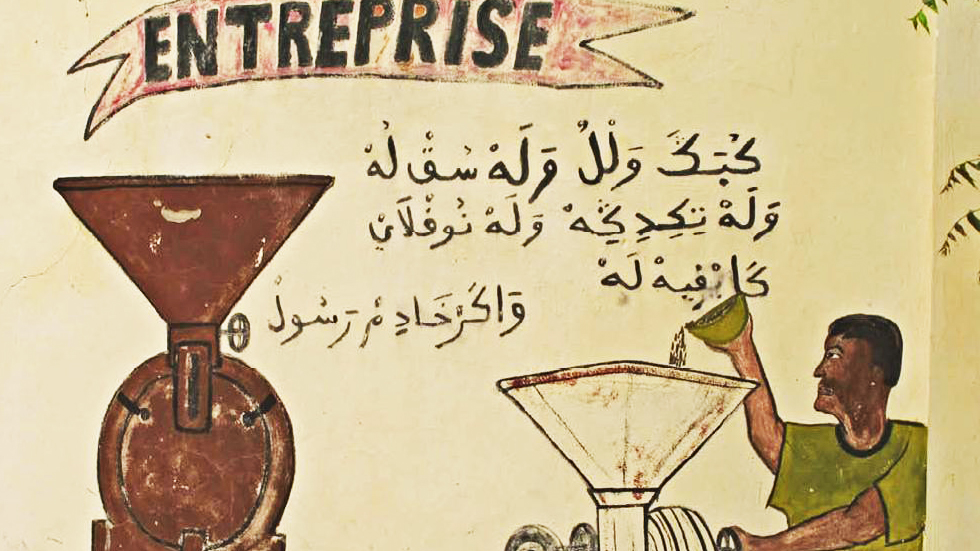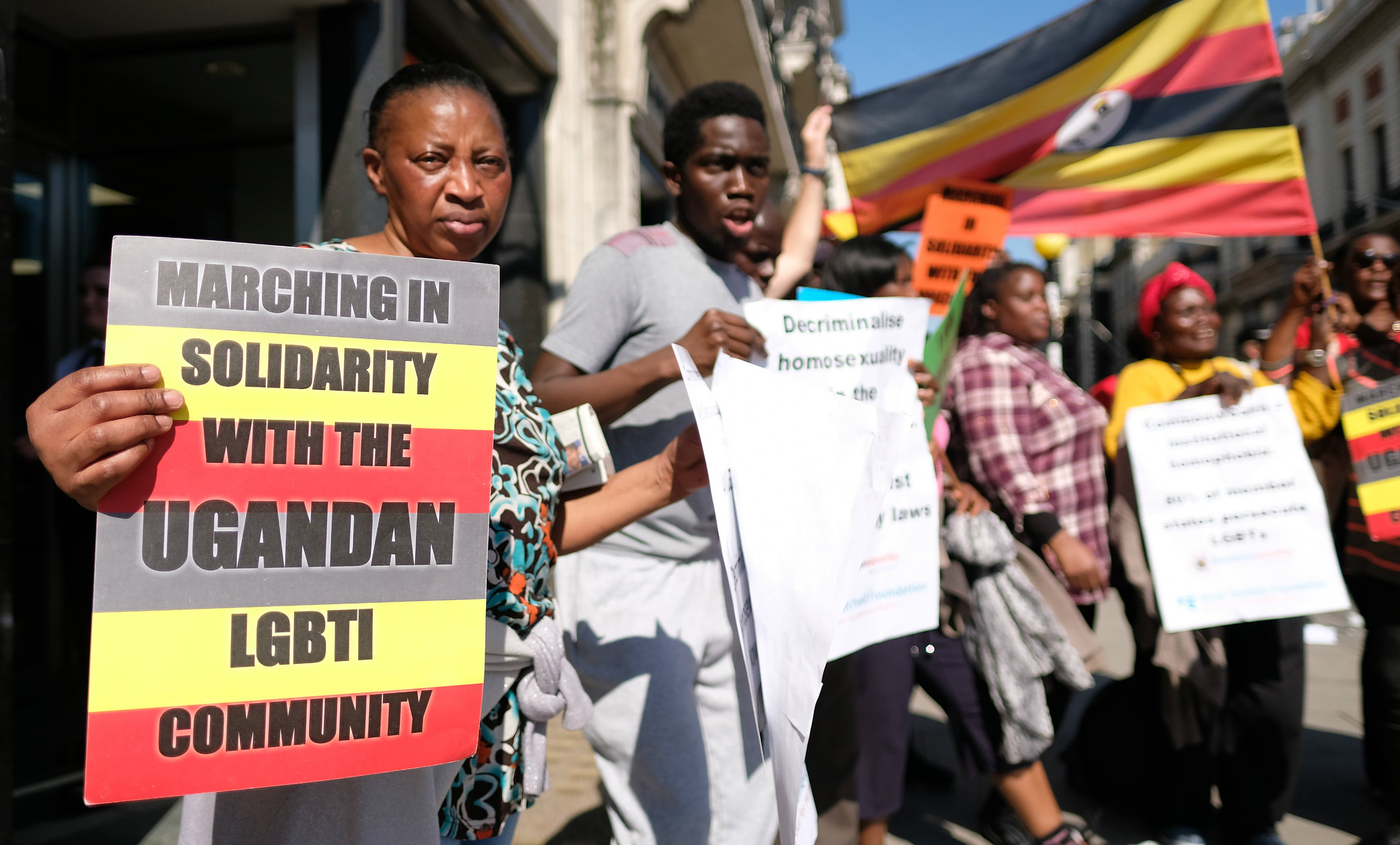LSE’s Rochelle Burgess weighs in on on-going racial debates in South Africa, 19 years after Nelson Mandela became South Africa’s first black President.
The world currently waits with bated breath for the inevitable passing of Nelson Mandela, universally lauded as one of the greatest figures in modern history. His status as a symbol of peace, forgiveness and acceptance in the establishment of a unified South Africa stands in stark comparison to many of his contemporaries. Brief readings of the histories of neighbouring countries like Angola remind us that the making and (remaking) of African states is fraught with war, unrest and leaders who represent the precise opposite. Under his steering, South Africa became known as the “rainbow nation” a name bestowed by Archbishop Desmond Tutu in an effort to recognise the complex cultural and racial demographics that comprise the country.

In the 18 years that has followed his election, Mandela’s dreams for South Africans, as detailed in the ANC freedom charter, remain elusive for many. The most recent general household survey indicates that black South Africans earn on average one-sixth of the annual income of whites, and that access to basic life amenities are divided along racial lines. Such realities drive many to argue that the rainbow nation is a myth – such as Gillian Schutte a South African film maker, writer and activist who began 2013 with an open letter to white South Africans, unabashedly calling on them to:
“…admit that the rainbow nation is a myth and until we truly are able to recognise the humanity of all people we cannot claim to be post-racist…. [and] to acknowledge how white supremacy continues to play out in the media — in representations of blackness — in the constant accusation that black people are racist when they speak their truth.”
As the world begins to reflect on the legacy of Mandela’s life of struggle and activism, it emerges that in many ways racial unity may not be one of them. In 2011 and 2012, a series of debates were sparked by an article written by South African academic Samantha Vice titled “How do I live in this strange place?” – in which she chronicled the complex relationship between guilt and shame that comprise the existence of a white person in contemporary South Africa. Her account, which drew heavily on her personal experiences, concluded with a call for “silence and humility” as the position to be assumed by white South Africans, one that attempted to recognise white people’s “damaging presence” in order to avoid the normal workings of whiteness (which she links to white privilege) by making themselves unheard. She goes so far as to state that,
“One would live as quietly and decently as possible, refraining from airing one’s view on the political situation… realising that it is not one’s place to offer diagnosis and analyses, that blacks must be left to remake the country in their own way. Whites have too long had influence and a public voice; now they should in humility step back from expressing their thoughts or managing others” (Vice, 2010 pg 335).
Cries of dissent were picked up by leading national news outlet The Mail and Guardian, who orchestrated a series of public debates and blog pieces in response to the piece. Vice does articulate that “silence” does not equate to passivity – acknowledging that public gestures where white South Africans take a public stand against injustice for the sake of reconciliation are needed, and the exclusion to this position. Yet, I am not alone in questioning the ability of positions of silence and humility to work towards challenging the structural hierarchies woven into the fabric of society during apartheid. Problems of race are undoubtedly as psychological as they are structural, with the experience of structures and systems inevitably connecting issues of identity and representation; the individual and the collective; and public and private life. Psychologist Derek Hook’s recent book A Critical Psychology of the Post-Colonial explores the interconnection between symbolic and structural forms of oppression that underpinned the demarcation of “blackness” in apartheid South Africa. His account affirms that identities emerged from the systematic and often violent social, structural and psychological processes that defined encounters between blacks and whites under apartheid, establishing the complex realities that frame tackling these issues today. As psychologist Sarah Ahmed asserts, “non-performative” acts within anti-racism efforts (similar to what is implied by calls of “silence and humility”) make very little sense in practical or psychological terms. The psychological pre-conditions for reducing stigma and racism reside within more than just the acknowledgement of the presence of the other, but active engagement and contact in ways that are contrary to previous damaging encounters.
Further to this, Vice’s piece inadvertently silences the myriad of white South Africans who also struggle in contemporary South Africa in spaces marked by poverty and violence. Her argument creates the danger of eschewing attention from what should be a collective fight against the impact of the failings of neo-liberal policies in the country and around the world that allow the richest 1% of the world’s population to amass 43% of the world’s wealth. Increasing acts of xenophobic violence against African migrants in recent months reiterates how the process of survival in South Africa transcends the divide of “white” and “black” toward a battle between the “haves” and “have nots”. This demands that those interested in tackling racial divides in any context also pause to consider who we are fighting against – echoing the cries of anti-apartheid activists such as Steve Biko who once called for a unified movement of all non-whites (or the ‘have-nots’) in resisting the apartheid regime. When we place ourselves on an axis of mutual collaboration in the struggle against injustices that impact all groups equally – failed political economies, as an example – we stumble across the most basic psychological condition for producing connection and mutual participation: a shared goal in securing a shared basic resource. South Africa’s position as the most unequal country in the world makes it quite clear what that resource is.
Political participation provides the ideal platform for collective engagements that challenge these injustices. Yet in South Africa, these spheres also remain at the mercies of racial complexities. In the run up to next year’s elections, political parties are already engaged in the fight for seats and the right to stake claim to Mandela’s legacy in supporting these endeavours. The Democratic Alliance (DA), the only South African political party with even marginal hopes of challenging African National Congress (ANC) dominance launched a leaflet as part of their election campaign called “Know your DA”. The leaflet presented Mandela embracing Helen Suzman, a white anti-apartheid activist and founder of the DA with the tagline: “We played our part in opposing apartheid”. The response from the ANC, who has become known for its “bullying” tactics in recent years, was unsurprising: striking back with a campaign that declared “So many of our own no need to borrow”. The symbolic space created by Mandela’s position as a fighter for a united South Africa towards the end of his struggle enables multiple groups to anchor to his image. Current tributes to his legacy in South Africa already mirror this, falling along old discourses of “us’ vs. ‘them”.
In her recent work, psychologist Catherine Campbell draws our attention to the realities of social change – which is more realistically viewed as an erratic, non-linear and unpredictable process. In this light, South Africa’s on-going debates on race are to be somewhat expected. The rebuilding of systems and development of positive psychologies needed to counteract the erosion of dignity and confidence of black South Africans created by apartheid-era policies, is a time-intensive process. One only need look to the United States of America, whose history of slavery, Jim Crow laws and segregation resulted in a similar eroding of black American identity and livelihoods, for confirmation. Some 50 years after the dissolution of the structural policies delineating racial difference (compared to South Africa’s 19 years), the US continues to struggle with issues of race. The impact of what many see as the unacknowledged axis of white privilege on black and minority groups in the US was highlighted by events surrounding the infamous murder of Florida teenager Trayvon Martin. Fortunately, widespread calls to challenge the structural racism within the legal system linked to the outcome of the case, highlights that while inequity remains the fight continues – only now across racial lines.
Mandela’s legacy in terms of race in South Africa is precisely this: the establishment of a similar space of possibility for South Africans to work through and challenge the difficulties and difference that once divided them. Recent reports of a white family who moved into a black township to experience the realities of living in conditions facing much of the black community in the country, exemplify such spaces of possibility. Though many argue the limits to these types of engagements, these actions are also the psychological preconditions for thinking and acting differently. Psychologist Zimitri Erasmus asserts that the more important question for anti-racism efforts in South Africa is an inquiry into the kinds of politics, knowing, seeing and belonging that is necessary for change. I would argue that the type of contact engaged in by this family – of an engaged, sustained and participatory form – exemplifies the latter of Erasmus’ concerns. Given the known psychological dimensions of racism, opportunities for knowing, seeing and belonging are equally crucial for undoing stigma and racism in the long term. These actions extend beyond Vice’s calls for the “non-performative”, beyond the accommodation of general anti-racist discourse. They represent a myriad of options now available to South Africans engaged in a collective fight to challenge the negative workings of race. But above all, these debates highlight the greatest tribute to Mandela’s life and legacy – the fact that such discussions are a possibility in the first place.






2 Comments